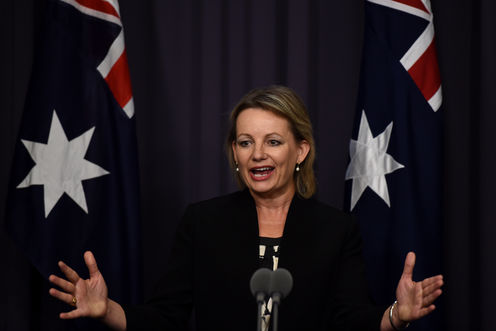
The Coalition government has ditched its deeply unpopular plan to have people visiting doctors pay A$5, but has retained the Medicare rebate freeze for both general practitioners and specialists. Doctors groups have warned that the measure will mean patients will have to pay more for medical services.
The Medicare rebate – currently A$37.05 for a standard GP visit – is the money the government provides doctors for each medical consultation. But GPs and specialists can choose to charge patients additional fees, as there are no rules about what they can and cannot charge. Bulk-billing GPs, for example, claim the A$37.05 straight from Medicare on their patients’ behalf. But if a GP doesn’t bulk bill and charges, say A$70, then patients can claim back A$37.05 from Medicare themselves and are A$32.95 out of pocket.
The rebate freeze was actually introduced by the last Labor government, and initially took effect from November 2013 to July 2014. And it was extended for two years by the current government. At the time, the Australian Medical Association (AMA) recommended doctors increase their fees by almost 3%.
The same prospect has been raised by the Royal Australian College of General Practitioners vice-president, Morton Rawlin, who said extending the freeze will, among other things, “force GPs to pass on increasing out-of-pocket costs to patients”.
A complex picture
But the data presents a different story. As Figure 1 below shows, bulk-billing rates for GP services have continued to increase since the rebate was first frozen in November 2013. But bulk-billing rates for Medicare as a whole, that is, once specialist and diagnostic services are also included, have levelled off and fallen slightly. This suggests the effect of the rebate freeze on bulk-billing rates is concentrated on specialist and diagnostic services.
Figure 1. Bulk-billing rates in Australia

The lack of change in the bulk-billing rates since late 2013 may mean GPs accepted a reduction in their profits. Or they’ve been doing other things to maintain revenue or reduce costs, including changing the types of services they provide.
Still, the impact on bulk-billing rates is not the full story, and not the only way specialists and GPs can react to the freeze. Doctors are likely to start charging patients more because the costs of running a practice will continue to increase while Medicare rebates remain frozen.
The rate of increase in practice costs is not known, but is likely to be around the inflation rate of 2% to 3%. Generally, doctors adjust to these increasing costs through regular price rises and by keeping a lid on practice costs.
A practice can reduce costs to maintain profit, encouraging more efficiencies in the ways they provide services. This could mean reducing the hours worked by practice nurses and administrative staff, which could have knock on effects to services provided. Companies that own a number of practices may reduce costs across their network by merging administrative functions or even closing surgeries, which could reduce access to health care in some areas.
Special cases
GPs may not increase fees or change bulk-billing if they think fewer patients will visit, which will further reduce revenue. There’s evidence that competition between GPs holds prices down, at least in metropolitan areas, which may explain why bulk-billing rates have continued to climb overall for all GPs.
But the extent of competition between specialists could be lower, which would explain why patients face an increased out-of-pocket cost for their services. As shown on the figure above, this seems to have occurred for specialists and diagnostic services since late 2013, and is likely to continue.
Finally, GPs may increase revenue by increasing the intensity of services provided so that patients return for follow up visits. This could increase quality of care in some cases where it is currently under provided, say for chronic diseases, such as diabetes. Or it could expose patients to unnecessary tests and investigations and increase the provision of “low value” or “frivolous” care.
How big these effects will be is difficult to say, and depends on gathering new evidence on the impact of such changes doctors’ behaviour. But it is likely to increase costs, at least to to Medicare.
Anthony Scott is an NHMRC Principal Research Fellow
